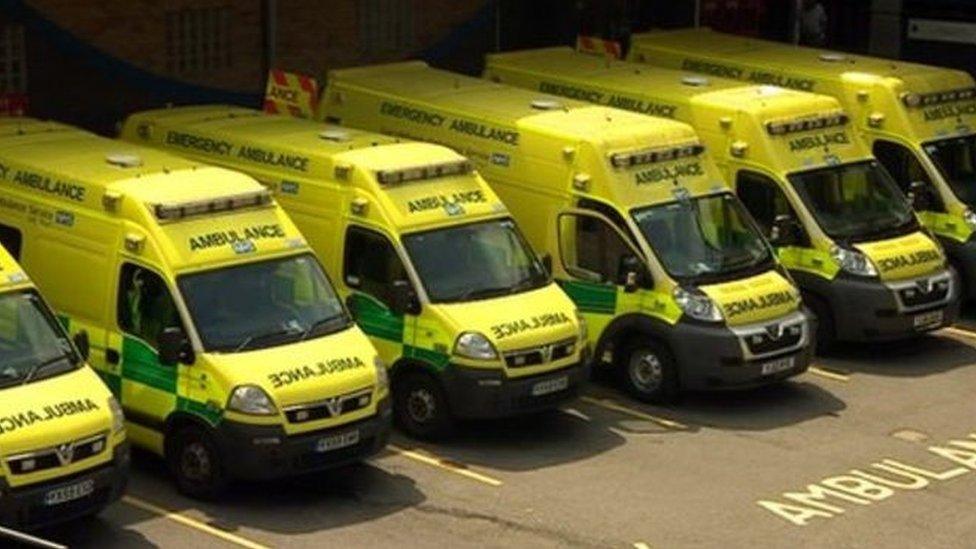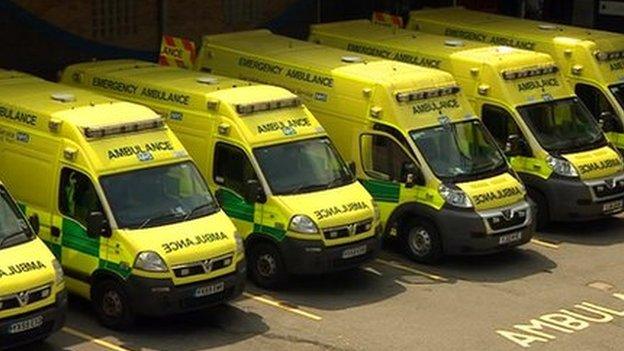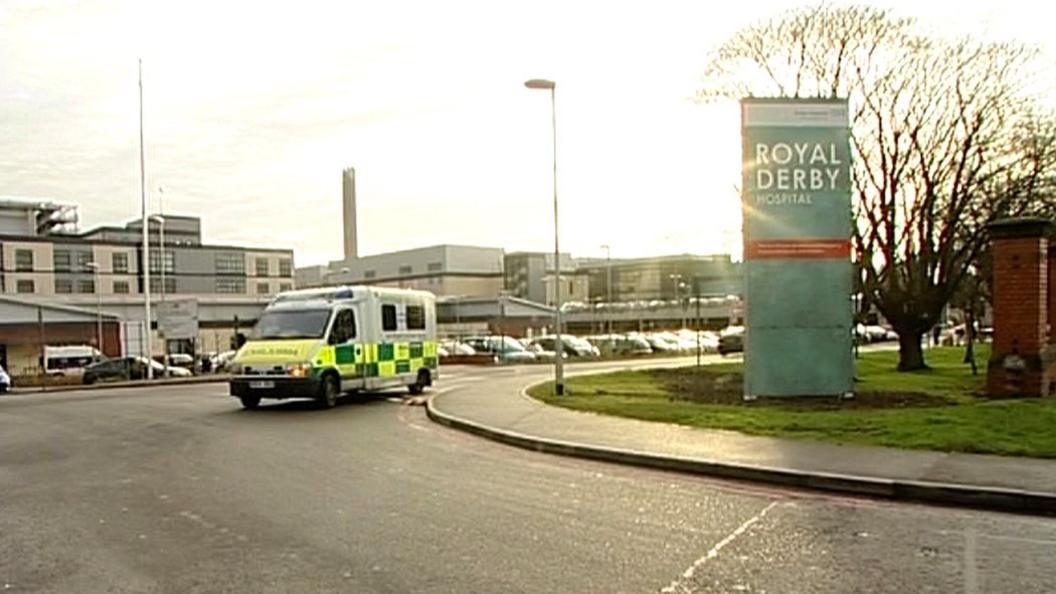East Midlands Ambulance Service: A&E handover times 'put lives at risk'
- Published

East Midlands Ambulance Service has reported incidents where handovers have taken over three hours
Lives are being put at risk by delays in handovers at A&E departments in Lincolnshire, East Midlands Ambulance Service (Emas) has said.
Emas said the delays presented a "significant risk" to patient safety, particularly moving into the busy winter period.
United Lincolnshire Hospitals Trust (ULHT) said it was working hard to reduce handover times.
It said it had to ensure "the sickest patients" were seen as a priority.
A report by the Hardwick Clinical Commissioning Group for Emas found in 2014/15 delays in patient handovers had "increased significantly".
It said long waits in the back of ambulances had an "adverse impact" on clinical outcomes, and meant patients had no privacy.
The report also found that while part of the increase could be put down to the "unprecedented level" of demand over winter, transfer times had failed to return to previous levels.
It said that people in the community were potentially put at risk by the delays and the availability of ambulances to attend emergency calls.
'Long waits'
In August, more than 1,200 ambulance transfers across the region took longer than an hour, compared with 270 in 2014.
Boston Pilgrim Hospital had 113 delays of over an hour out of 2,126 handovers.
On Saturday, staff at the hospital reported delays of two-and-a-half hours.
Shane Searby, paramedic group leader in Boston, said: "We had eight ambulances stuck at A&E because they couldn't hand over to the nurse in charge."
Mark Brassington, acting director of performance improvement at ULHT, said: "The long waits reported are not acceptable, but putting this into context our average handover time is about 20 minutes."
He suggested handover times could be reduced by offering more services in the community, away from A&E departments.
The government target for ambulance crews to hand patients over to hospitals is 15 minutes.
- Published16 June 2015

- Published15 May 2015
